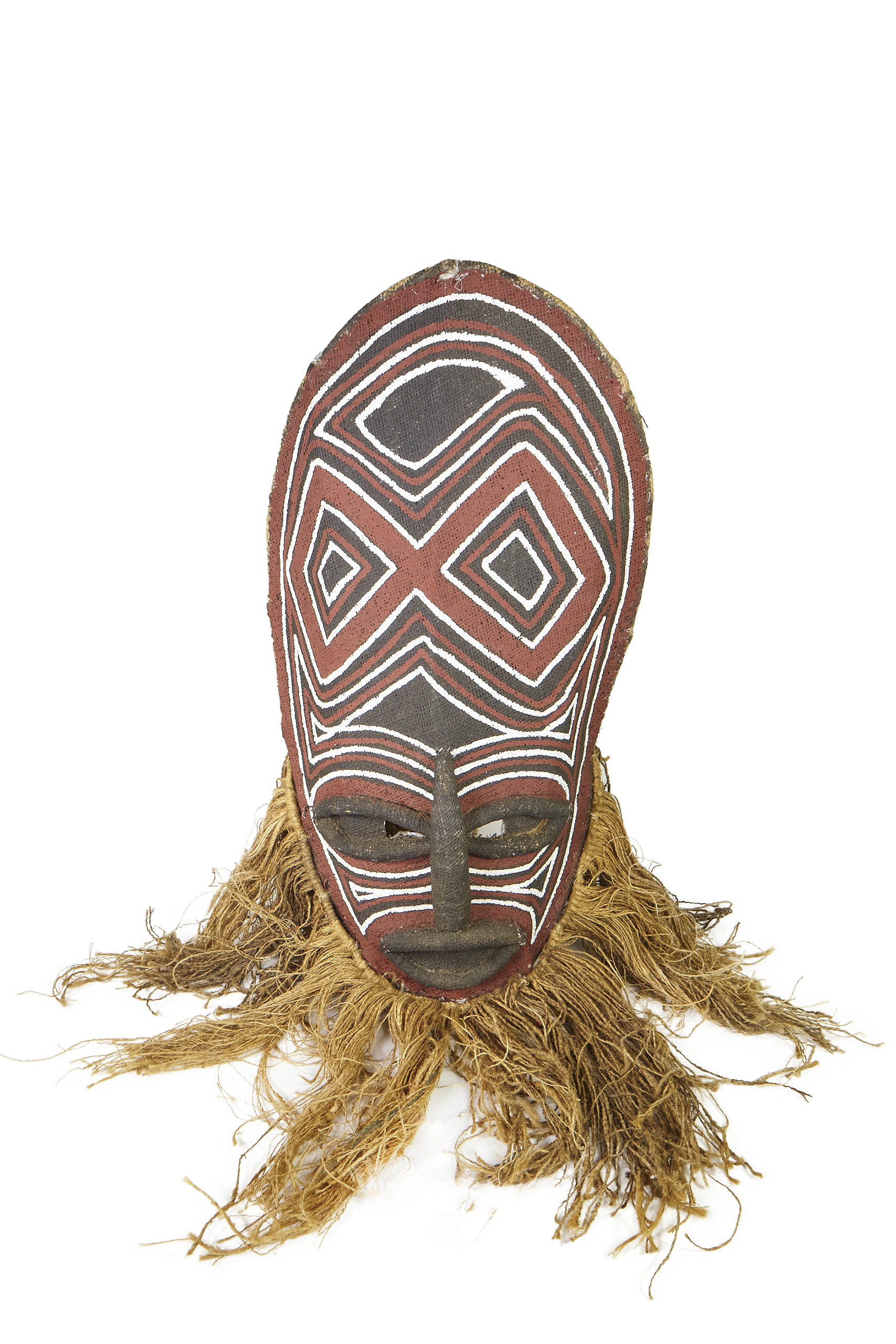Headdress/Mask Chokwe Cikunza
Burlap, pigment, and raffia, on wood frame ca. 20th century
H. 43 x W. 14 in. approximately
The Chokwe people of Angola, The Democratic Republic of Congo, and Zambia, are known as some of the most skilled wood carvers in Africa. They resisted colonization far longer than most peoples of the region, despite repeated incursions by the Portuguese and other Europeans. The Chokwe use masks in many contexts. The makishi (dead) dance is performed at the end of adult initiation rituals for boys, called mukanda, primarily in Zambia. The cikunza mask represents an ancestor and is worn by an older man to teach boys the knowledge they will need as men, particularly relating to hunting and sexual relationships. Unlike most African masked dancers, the cikunza does not wear a raffia fiber suit, but instead paints his body in bright geometric patterns. After the boys are circumcised, the newly minted adults remove the masks from their relatives and swear an oath to maintain the secrets of their identities. The language of the Chokwe people is a Bantu language.
Citation:




